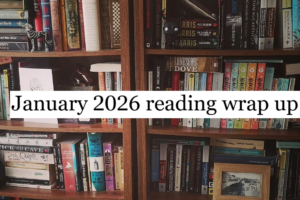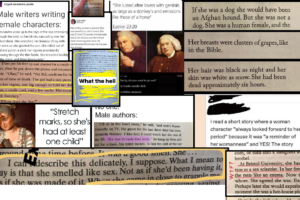The dystopian genre has an extensive repertoire of tricks that it uses to challenge its readers, and one of the most popular ways of doing this is to turn something natural into something repulsive. It makes you question everything you are and everything you know as you try to make sense of something you once thought of as familiar.
If you take something as essential in life as conceiving and rearing a child for instance, something that is arguably our main goal as humans; what would happen if it became unachievable, or even a hostile experience?
The idea of a child contributing to a dystopic social state is nothing new. Nineteen Eighty-Four featured horrid children that were encouraged to snitch on their parents and the adults they knew in order to help the Party hone in on criminals. Orwell described the children as having almost a sixth sense when it came to discovering Thought Crimes, creating an incredibly uncomfortable atmosphere between parents and their offspring. Age is generally thought to denote hierarchy and so it can be very alarming for an adult to be in the company of a child that they are unable to overpower, especially due to the illogical nature of infants. They will not, for example, respond to pitying pleas.
Handmaid’s Tale and The Chrysalids had a different perspective on the unnaturalness of conception as they focused on the guilt and the fear of producing a defective, mutated child over the fear of a more powerful one. Damaging or causing the death of a child to most would be the most emotionally scarring event that a person could go through, and therefore if this strong emotion is felt continuously then it would easily cause permanent devastation to the human psyche. A damaged person, as we all know, is an easily manipulated person, which in turn is a key element in creating a dystopic society.
P.D. James’ Children of Men illustrated the pain that infertility brings and shows procreation as a precious and unfathomable gift. There is a great sense of foreboding in this book, a desperate shame surrounding something that one is unable to control. The bringing about of life should not be overly scrutinised and should be something that happens unexpectedly when it is required, but when this doesn’t happen our instinct is to dominate and fix whatever is wrong…and thus a Brave New World is born.
There really are endless examples of dystopian literature that focus on birth and offspring as something to either be feared or to approach with caution, and they all seem to centralise on the debate of nature vs nurture. We may be able to achieve unimaginable feats and push more and more boundaries in the world of technology, but should the creation of new life ever be tampered with?
The novel We Need to Talk About Kevin is not technically dystopian but it shares a lot of the same ideals as it highlights the odd border between what we want and what we need. We have become a society where we don’t all need to have children to keep the population going, so what does this do for our primal urges? Are we ignoring them? Are we becoming inhuman not to procreate, and if we are forcibly conceiving unwanted children what does that make them become?
Whatever the reasoning behind this, it is undeniable that breeding is a frightening concept – creating another life seemingly out of nowhere is so bizarre and incomprehendable it could almost be science fiction.



Leave a Reply to dvb-t Cancel reply